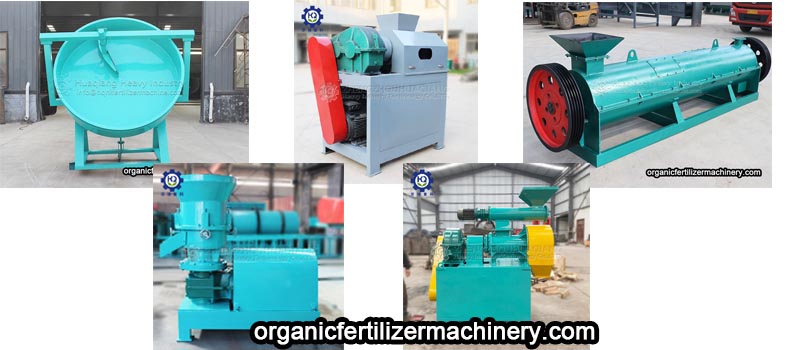There are many types of
organic fertilizer granulation machine, which can be selected according to the characteristics of your production materials and the production requirements. The general manufacturers will give suggestions.
The particles produced by organic fertilizer can be spherical, cylindrical and oblate. The granulator equipment used is different due to the different particle shape. Organic fertilizer granulator, disc granulator, rotary granulator and agitating gear granulator produce spherical materials; double roller granulator produces flat spherical organic fertilizer; ring die granulator and flat die granulator produce cylindrical particles; Zhengzhou Tianci heavy industry has many kinds of granulators for you to choose from.

1. Drum granulator. The drum granulator has the advantages of simple structure, good pelletizing, high output, low energy consumption, convenient operation and maintenance, low cost and long service life. However, this kind of organic fertilizer granulator has selectivity for materials, which requires the content of crude fiber to be in a certain range, the moisture content of materials must be high, and the later drying can be carried out in bags for storage and transportation. The particle density is small and the bagging damage rate is high.
2. Extrusion granulator. This kind of organic fertilizer granulator is a kind of organic fertilizer granulator which is used for reference in combination with the working principle of feed granulator. Extrusion organic fertilizer granulator can be divided into
double roller granulator, flat die organic fertilizer granulator, ring die organic fertilizer granulator and rolling organic fertilizer granulator. This type of organic fertilizer granulator produces uniform particles, high density, low moisture content, low damage rate of bagging, simple drying in the later stage, and no strict requirements for crude fiber content of raw materials. The disadvantage is that the power consumption is high, there are certain technical requirements for operation and use, and the moisture content of raw materials is required to be low.
